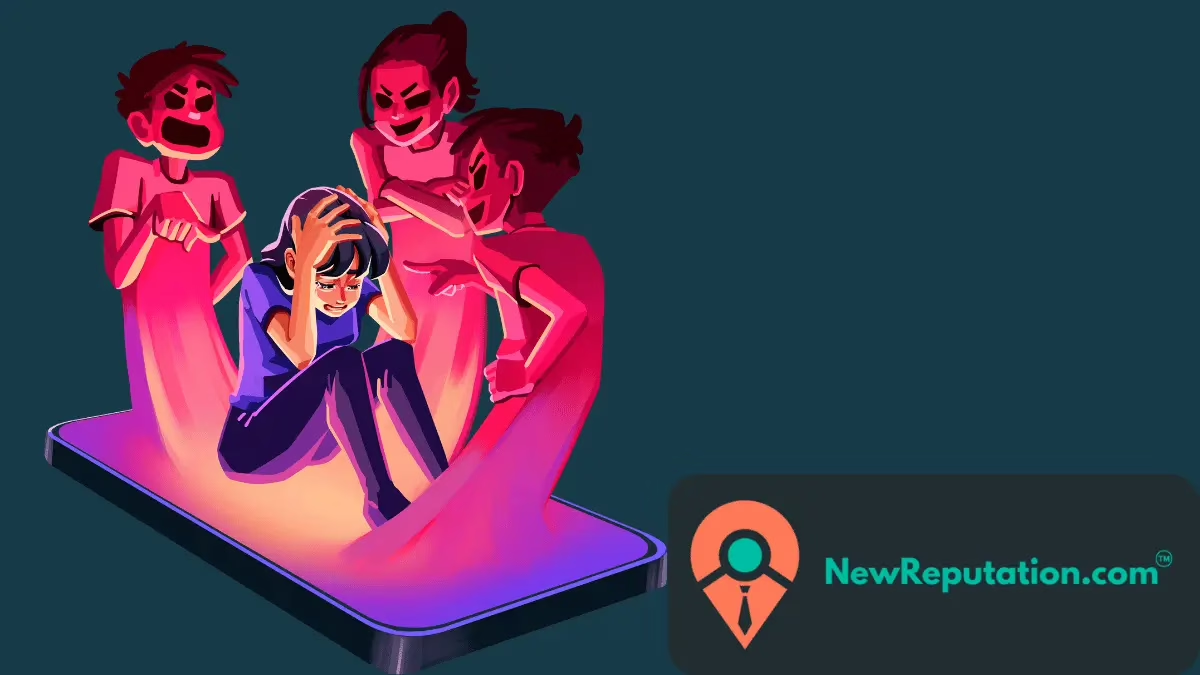The internet has made communication easier; it has made cruelty easier.
One comment, one edited picture, or one fake profile can ruin someone’s peace of mind. It’s fast. It’s anonymous. It’s everywhere.
Is cyberbullying really illegal?
Let’s break down what cyberbullying is, how the law defines it, and what you can do if you’re a victim of online harassment.
Definition and Types of Cyberbullying
What exactly is cyberbullying?
Cyberbullying is using electronic devices (such as phones, computers, tablets) to harass, threaten, or humiliate someone online.
It’s not just “mean comments.” It’s:
Harassing messages or threatening messages repeatedly sent.
Posting obscene images, editing pictures, or memes that are meant to embarrass someone.
Impersonating someone online by creating a fake social media account.
Sharing private information or photos without consent (known as outing).
Trolling or coordinating attacks to humiliate or isolate a person.
Cyberbullying often overlaps with cyberstalking, online harassment, and digital defamation.
Also, the internet magnifies everything. This is why cyberbullying is so destructive and legally complicated.
Legality of Cyberbullying
The truth is: cyberbullying can be illegal. But it depends on what was done, where it happened, and how severe it was.
In most cases, it will be treated under existing laws covering criminal harassment, stalking, or defamation.
Example: In California, there is a felony charge for using electronic communications to cause emotional distress or intimidation to another person.
There are some behaviors that clearly cross into criminal territory:
Threatening someone with violence credibly.
Publishing non-consensual private images.
Stalking or engaging in hate crimes consistently.
The juvenile criminal system may treat cases involving minors different than adult criminal court systems. But the same behavior can lead to both criminal charges and school disciplinary actions.
Often courts apply the reasonable person standard and ask if an average person would feel harassed, threatened, or afraid.
Does Free Speech Matter?
Free speech protections still exist.
Not every hurtful post is a crime. However, when speech becomes an invasion of privacy, threats, or intimidation, it loses its First Amendment shield.
This is where cyberbullying laws step in to stop harm without silencing legitimate expression.
States and Local Laws
Instead of a single federal law against cyberbullying, it is handled state and locally.
Almost every state has anti-bullying laws or statutes that include cyberbullying. But details vary between states.
Texas passed David’s Law which makes off-campus cyberbullying a misdemeanor and gives schools authority to discipline students for online harassment.
California uses Penal Code Section 653.2 PC which covers harassment or intimidation via electronic communications.
New York and Florida have administrative sanctions and allow victims to file civil causes of action for damages.
Some areas also have parental responsibility laws which hold parents responsible for their children who engage in cyberbullying.
Range of Penalties and Consequences
What happens if someone is found guilty of cyberbullying?
Consequences depend on the severity of conduct and laws of the state.
Under California Penal Code 653.2 PC, online harassment is a misdemeanor offense with up to one year in jail and fines up to $1,000.
Severely violent cases such as stalking, defamation, or sharing non-consensual sexual images can be charged as felony offenses.
Courts can also impose:
Civil restraining orders.
Community service.
Payment of restitution to pay for expenses related to the victim’s experience.
Psychological counseling ordered by the court.
Provisions for no contact.
In school, cyberbullying can result in suspension or expulsion, especially when it occurs outside of campus and affects the student learning environment.
In some cases, victims may pursue defamation lawsuits seeking monetary compensation for damage to reputation.
Conclusion: cyberbullying is not just a school issue, it can follow you to court.
Legal Rights and Options Available to Victims of Cyberbullying
You have rights and options as a victim of cyberbullying.
Documenting All Evidence
Save screenshots of messages, posts, and social media profiles involved. Record timestamps, URLs, usernames. These are vital to establishing a case for civil court or criminal prosecution.
Reporting to Authorities
If you receive threats or experience persistent communication, report the harassment to your local police department.
In many states, victims can request a restraining order or a no-contact provision against the harasser.
Obtaining Legal Counsel
Consult with a personal injury attorney or a criminal defense attorney to guide you through the process of filing charges or a civil lawsuit.
Victims can pursue remedies including an injunction to stop the harassment, monetary damages, or community service orders for offenders.
Using Online Reporting Tools
All major platforms (Facebook, Instagram, TikTok, X) have dedicated reporting forms for online harassment and impersonation. Submit reports promptly to stop the spread of posts.
Access to Emotional and Legal Support
Organizations such as StopBullying.gov and victim hotlines can provide assistance.
Many schools have trained primary contacts or trusted adults to intervene.
Note: cyberbullying leaves long-lasting emotional scars. Do not face this alone.
Effects and Risks of Cyberbullying
Cyberbullying can create deep and lasting effects.
Victims often experience:
Depression, anxiety, loss of sleep
Feeling alienated, isolated
Damage to reputation, defamation
Emotional distress, suicidal ideation
Harm does not stop at the victim. Family members, schools, and communities can also be harmed. Offenders may face disciplinary actions, criminal penalties, and damaged reputations that can follow them into adulthood.
In extreme cases, non-consensual dissemination of private images or “revenge porn” can result in both criminal charges and civil liability.
Conclusion: cyberbullying is not harmless. It is a form of psychological violence. The reach of cyberbullying extends beyond the screen.
Prevention and Education
The best way to stop cyberbullying? Prevent it before it starts.
Now, schools and communities are focusing on education, policy, and communication.
Education Programs
Anti-bullying programs nationwide are supported by federal and state agencies including StopBullying.gov and the Youth Risk Behavior Surveillance System.
Teach:
Responsible online conduct.
Communication among students, teachers, and parents.
Identifying and reporting online harassment.
School Policies
Many districts have school policies addressing cyberbullying that extend protection off-campus. These policies also provide protection for transgender students and other vulnerable populations.
Community Training
Local organizations are launching modules to train parents, teachers, and students on awareness and early action to make online spaces safe.
The earlier the bullying is reported, the earlier it can be stopped.
Key Takeaways
Recap:
Cyberbullying is real, common, and harmful. Includes harassment, impersonation, and spreading obscene or false content.
Can be illegal. Many states treat it as a criminal offense under harassment or stalking laws.
Range of penalties: from community service to jail time and civil damages.
Victims have legal options: filing restraining orders, civil lawsuits for monetary relief.
Long-term solution: education and prevention.
Final Thoughts
So is cyberbullying really illegal?
Yes, and it is getting more illegal each year.
What used to be viewed as “online drama” now falls under serious harassment statutes and cybercrime laws.
However, not all hurtful posts will land someone in jail. Courts carefully balance free speech vs. harassment.
Longest path forward: awareness. Understand the law. Document harassment. Report quickly.
Standing up for yourself online isn’t weakness. It’s protecting yourself.
Don’t let cyberbullying control your online narrative. Contact NewReputation today and take back your online identity.

Kevin Curran is the founder and CEO of NewReputation, a renowned online reputation management firm. He is also the co-founder of ReputationPrivacy, a platform designed to help individuals manage their digital footprint effectively. Kevin has worked with diverse clients, including Fortune 500 companies, high-profile executives, and small business owners, to establish an authentic online presence that accurately represents their brand.

